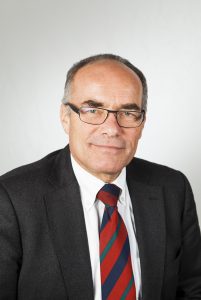Editorial
The closure of the German coal mining industry at the end of 2018, along with the recent announcement that the country is to decommission all its coal-burning power plants by 2038, will pose major challenges for the regions and industries affected. Energy sources, technologies and even job markets are all set to undergo radical change. And this is our cue to look at how renewable geothermal energy – which in a broader sense means borehole mining – can play its part in making a success of the energy transition process. This issue will therefore be focusing on deep geothermal projects, in other words on the potential that can be exploited by drilling geothermal wells greater than 400 m in depth.
When it comes to the geological exploitation of deep geothermal deposits there are currently very few established techniques that are equally suited to every location. This is because the prevailing conditions simply vary too much from case to case. All this calls for a lot of development work, which is precisely why the Fraunhofer Society set up its Bochum-based Institute for Energy Infrastructures and Geothermal Energy (IEG). As well as conducting research into borehole technology the IEG is also involved in investigating how former coal mines can be used as heat and cold storage systems. The GeoLaB underground geothermal laboratory is currently investigating the thermo-hydro-mechanical-chemical (THMC) interactions of deep geothermal reservoirs and other aspects of reservoir engineering. This will entail the development of a mining gallery as a geoscientific underground laboratory in the crystalline basement.
Many of the deep geothermal projects now running in Germany are based in the south of the country, which is why it is worth having a look at the geothermal potential in neighbouring Austria. Scientists there are also examining how geothermal factors can affect the production capacity of gas wells.
Another paper in this issue explores the technical aspects of an innovative drill rig that has been specially designed for drilling deep geothermal wells. We will also be examining the legal conditions governing geothermal drilling projects and the public perception of this technology. In the same context the final article presents an analysis of how the renewable energy debate is progressing in the German language version of Twitter.
Dear Readers, this memorable and difficult year is slowly drawing to a close. Every sector and every person has been affected in some way by the Corona pandemic. While it is still too early to predict an end point to the impact of the disease we are now at least beginning to see some light at the end of the tunnel. The first German-developed vaccines are on the verge of being approved, while the German economy has, with some exceptions, coped better with the pandemic than had initially been feared. These two facts would seem to indicate that on the whole Germany is not in such a bad state after all! So let me conclude by sending my best wishes to one and all for the coming year.
With my best regards
Dipl.-Ing. Andreas-Peter Sitte
Chief Editor Mining Report Glückauf, Essen
